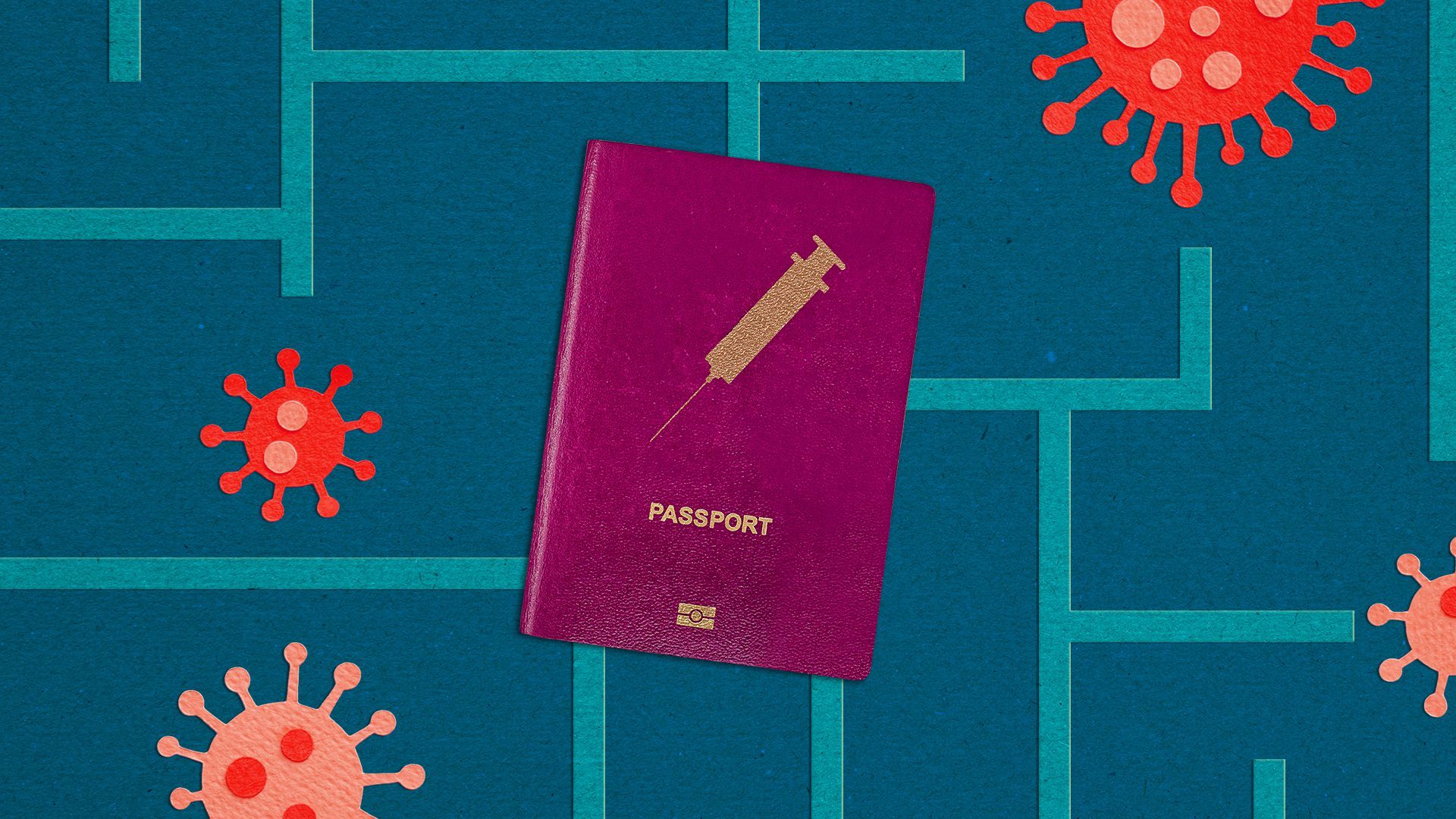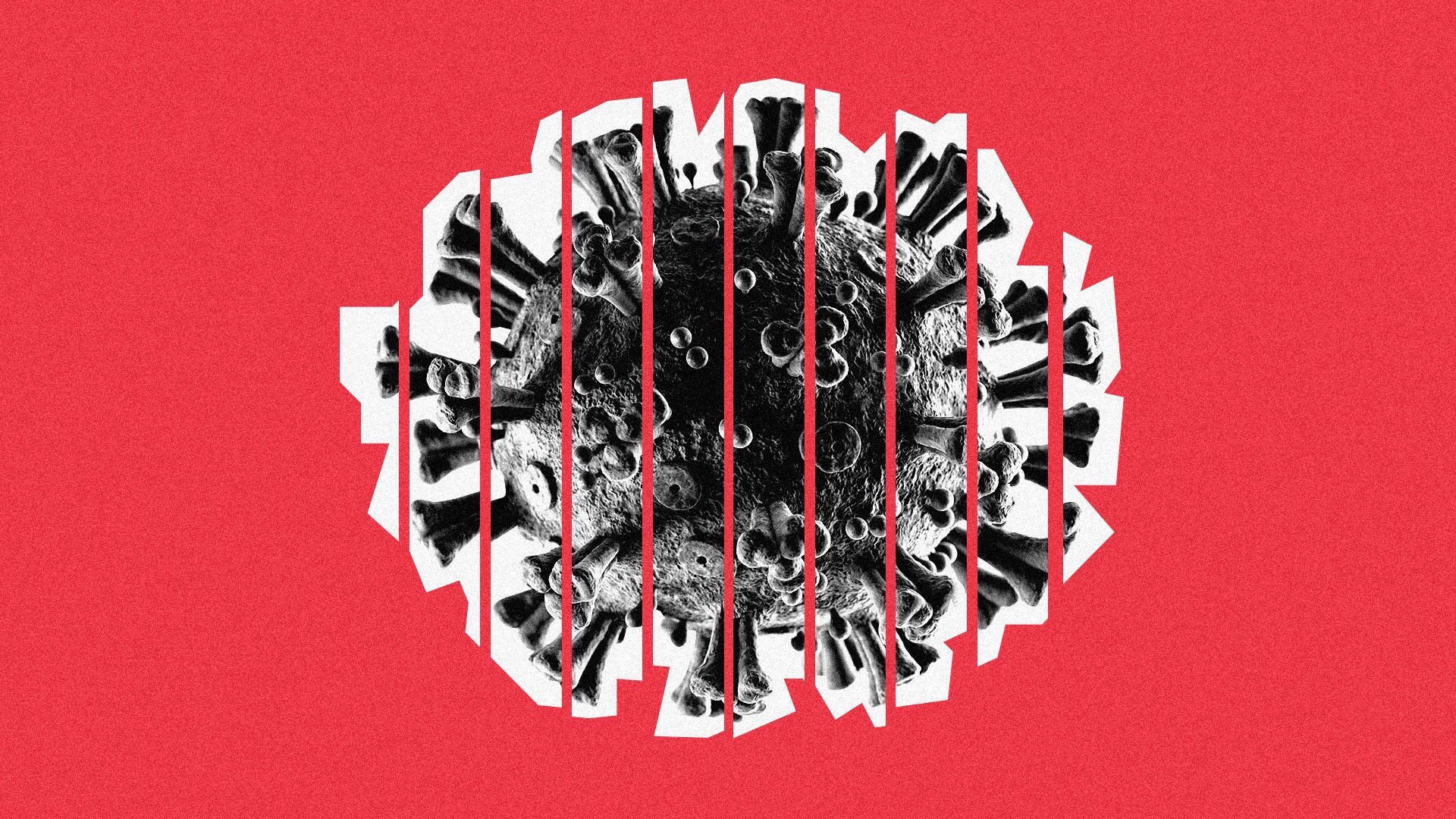| Many private businesses and some states are plowing ahead with methods of verifying that people have been vaccinated, despite conservative resistance to "vaccine passports," Axios' Ashley Gold and I report. Why it matters: Many businesses view some sort of vaccine verification system as key to getting back to normal. But in the absence of federal leadership, a confusing patchwork approach is likely to pop up. The big picture: "I think it's going to be a tidal wave that's going to be very difficult to stop, because there's enormous economic and social incentive for proof of vaccinations," said Lawrence Gostin, a professor at Georgetown University. Where it stands: The Biden administration has said that it will not mandate vaccine passports across the country, nor will it create a federal vaccination database. That leaves decision-making to the states and the private sector. - But several Republican governors already said they'll fight any such systems.
The other side: Many private companies have already begun planning ways to verify that their customers have been vaccinated. - New York has also rolled out a pass that sports and entertainment venues can use if they choose, and Hawaii is working on a vaccine passport that would let travelers bypass a two-week quarantine.
Between the lines: Requiring proof of vaccination is likely on solid legal ground, experts said. - "In general, private businesses can decide who they're willing to admit into their businesses and serve so long as they don't violate either the federal Civil Rights act or a state law," University of Pennsylvania professor Eric Feldman told Axios.
Where it stands: Online services, universities, airlines, and retailers are figuring out how and whether to provide proof of vaccination for students, customers and employees. What we're watching: Experts worry that vaccine verifications could end up deepening existing inequities, as vaccination rates among people of color lag behind those of white people in the U.S. Go deeper. | 







No comments:
Post a Comment